Bitter Sweet

Brief Synopsis
Cast & Crew
W. S. Van Dyke Ii
Jeanette Macdonald
Nelson Eddy
George Sanders
Ian Hunter
Felix Bressart
Film Details
Technical Specs

Synopsis
In the late Nineteenth century, on the evening of her engagement party to stodgy Harry Daventry, Sarah Millick foresakes her fiancé for the love of her Viennese music teacher, Carl Linden. After eloping to Vienna, the newlyweds take up residence in Carl's garret, and are welcomed by his friends Max, Ernst and Mama Luden. Sarah inspires Carl to complete the operetta that he is composing, but when he is unable to sell his work, the couple suffer financial hardships. They are at their most desperate when Sarah convinces a local grocer to let her give his daughter singing lessons, but is fired a few minutes later when Carl tries to convince the grocer to hire him to do the job. When the grocer angrily orders them both out, they return to their flat. Their fortunes start to change when Max and Ernst pawn a piece of their furniture to buy some meat and bread, after which the group decides to become street musicians. One afternoon, as they are performing on the streets of Baden, Sarah attracts the attention of Lord Shayne, as well as the lecherous Baron von Tranisch, who gets her a job at Schlick's Cafe. At the cafe, Sarah learns that the Baron is her benefactor when he comes to claim his reward, and she quits her job. She returns to sing, however, when Lord Shayne brings impressario Herr Wyler to hear Carl's operetta. As Sarah performs for Herr Wyler, the drunken Baron accosts her. To defend his wife's honor, Carl fights a duel in which he dies at the Baron's sword. Although Carl dies, he lives on in his music when Herr Wyler agrees to stage his operetta, and Sarah remains in Vienna to star in the production. After the premiere of the opera, Sarah returns to their flat and, knowing that Carl is not dead as long as his music continues, sings to him as she gazes across the Vienese sky

Director
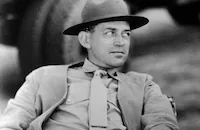
W. S. Van Dyke Ii
Cast

Jeanette Macdonald

Nelson Eddy

George Sanders
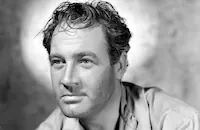
Ian Hunter

Felix Bressart
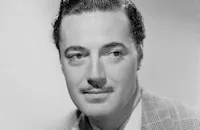
Edward Ashley

Lynne Carver

Diana Lewis

Curt Bois

Fay Holden

Sig Rumann

Janet Beecher
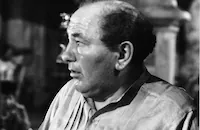
Charles Judels

Veda Ann Borg
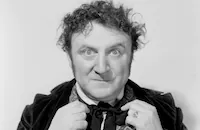
Herman Bing
Greta Meyer
Rosemarie Brancato
Jack Powell
Mauricette Melbourne
Katherine Harris
Neal Kennedy
Andrew Grieve
Music Hall Rockettes
Corps De Ballet And Glee Club
Philip Winter

Armand Kaliz
Alexander Pollard
Colin Campbell
Art Berry Sr.
Sam Savitsky
Howard Lang
Lester Scharff
Hans Joby

Jeff Corey
Paul E. Burns

Hans Conried
John Hendrick
Ruth Tobey
Warren Rock
William Tannen
Davison Clark
Jean Debriac
Erno Verebes
Pamela Randall
Muriel Goodspeed
Earl Wallace
Louis Natheaux
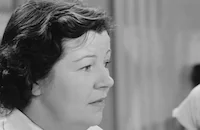
Margaret Bert
Julius Tannen
Armand Cortes
Irene Colman
June Wilkins
Jack Chefe
Gino Corrado
Max Barwyn
Eugene Beday
Paul Oman
J. D. Jewkes
Charles Prescott
Tim Stark
Crew
Adrian
Hugh Boswell
Lorraine Bridges
Earl Covert
Noël Coward
Allen Davey
Jack Dawn
John Detlie
Giuseppe Giacosa
Cedric Gibbons
Sydney Guilaroff
Luigi Illica
Henri Jaffa
Natalie Kalmus
Harold F. Kress
Ann Harriett Lee
Ernst Matray
Giacomo Puccini
Merrill Pye
Gioacchino Antonio Rossini
Lesser Samuels
Victor Saville
Douglas Shearer
Gile Steele
Herbert Stothart
Edwin B. Willis

Photo Collections
Film Details
Technical Specs

Award Nominations
Best Art Direction
Best Cinematography
Articles
Bitter Sweet
Bitter Sweet was based on the operetta of the same name written by Noel Coward and performed first on the London and New York stages in 1929. It had been filmed once before in Hollywood in 1933 with Anna Neagle and Fernand Gravey in the roles of the young lovers. Jeanette MacDonald had also been considered for the lead in the 1933 film as well, but negotiations broke down resulting in Neagle getting the part instead.
The Nelson Eddy and Jeanette MacDonald Technicolor remake of Bitter Sweet was much anticipated as the operatic singing pair was at the height of its popularity. The buzz was that it might be another Maytime (1937), one of the team's greatest screen successes. For her role, MacDonald had to age convincingly from youth to old age. According to James Robert Parish in The Jeanette MacDonald Story (Mason/Charter), "this provided a challenge for makeup expert Jack Dawn. He prepared three life masks of Jeanette, and then by experimenting with a rubberlike substance he called "formula six" composed segmental latex alterations for her to apply as she "aged." Parish also wrote that during filming MacDonald once "arrived at the studio in a shade of vermilion called "sunburn." The burn was so severe that a Hungarian costume she was to wear had to be redesigned with a higher neck, and while modeling the outfit on camera, the star had to keep her smiling face in full view of the all-revealing lens."
A more serious problem was that the structure of Bitter Sweet too closely resembled Maytime. MGM therefore ordered Bitter Sweet's prologue and epilogue trimmed before it was released in an effort to cut down on the similarities between the two films.
Upon its release Bitter Sweet received a lukewarm reception from the public, and it turned out to be a rare financial disappointment for a Nelson Eddy-Jeanette MacDonald picture. Some critics found fault with the lavish production value, while others felt that Lesser Samuels' screenplay strayed too far from Noel Coward's original source material. Some even criticized the leads, both in their late 30s, for being too old to play young lovers. Most did agree, however, that the film's visual artistry was commendable with its beautiful costumes and sumptuous Technicolor art direction, which garnered an Academy Award nomination, as did the color cinematography. The grand number "Zigeuner" at the end of the film was given particular accolades for its unique staging and set design. The lovely Noel Coward songs featured include "Dear Little Cafe," "If You Could Only Come With Me" and "Tokay."
Producer: Victor Saville
Director: W.S. Van Dyke
Screenplay: Noel Coward (play), Lesser Samuels
Cinematography: Allen M. Davey, Oliver T. Marsh
Film Editing: Harold F. Kress
Art Direction: Cedric Gibbons
Music: Noel Coward
Cast: Jeanette MacDonald (Sarah Millick), Nelson Eddy (Carl Linden), George Sanders (Baron Von Tranisch), Ian Hunter (Lord Shayne), Felix Bressart (Max), Edward Ashley (Harry Daventry).
C-94m. Closed captioning.
by Andrea Passafiume

Bitter Sweet
Quotes
Trivia
Notes
A Hollywood Reporter production chart adds Leni Lynn to the cast, but her participation in the final film has not been confirmed. Some of the lyrics in the "Tokay" number were dubbed for Jeanette MacDonald by Ann Harriette Lee, who also instructed MacDonald in French accents and pronunciation for the number. The picture was nominated for an Academy Award for Best Color Photography. According to news items in Hollywood Reporter in early 1932, Paramount Pictures was planning to film a two-strip Technicolor version of the Noel Coward operetta. The picture was planned as a spring or summer production and was to star Jeanette MacDonald. Although that version was never made, in 1933, Herbert Wilcox directed Anna Neagle in a British version of the operetta. Irene Dunne appeared in a Lux Radio Theatre version of the story on November 5, 1936.















